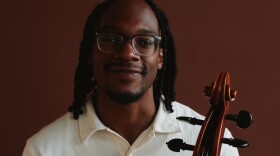Unlike other election years, the Middle East has not gotten a lot of attention as a campaign issue this season. There’s been some lingering talk of former Secretary of State Hillary Clinton’s place in the Benghazi controversy, and some talk about the Iran nuclear deal, but largely the campaign has been about domestic issues.
One expert on Middle Eastern politics and policy says that might be for the best. Geneive Abdo is nonresident senior fellow at the Atlantic Council in Washington and author of a forthcoming book, whose working title is The New Sectarian Post-Arab Uprisings. She points out that there is a lot more to Middle Eastern policy than how the United States interacts with the region.
"Western powers have a lot less say in the Middle East than they had before the Arab uprisings. To be perfectly honest, many Arabs don't really care what the United States thinks," she says. "The Arab uprisings, they happened because Arabs wanted to be in charge of their own destinies."
Since the Arab Spring began in late 2010, a lot has changed in the region. Dictators have been forced out of power, civil wars erupted and a new brand of extremism has emerged in countries throughout the Arab world. Although many of the uprisings began as secular protests, the focus has shifted over time to include conflicts based in religious tension.
"Religion became a very important part in the uprisings, and this is why we are seeing for example this terrible violence that is occurring between Shia and Sunni Muslims in Iraq, in Syria, in Yemen," says Abdo.
As the situations in parts of the Middle East continue to deteriorate, it's unclear how the U.S. should respond moving forward. Abdo contends that the semi-recent Iran Nuclear Deal had some unforeseen repercussions in the region. Some people felt it was a sign the United States was supporting Sunni Muslims instead of Shias. Abdo believes the United States should have asked Iran for more.
"What has happened sometimes during the years of the Obama Administration is that other priorities have trumped human rights," she says. "So we've decided we're not going to talk about human rights violations because there's too much of a political cost to that. So I would say that one question would be, 'Are we going to pay more attention to human rights violations?'"





